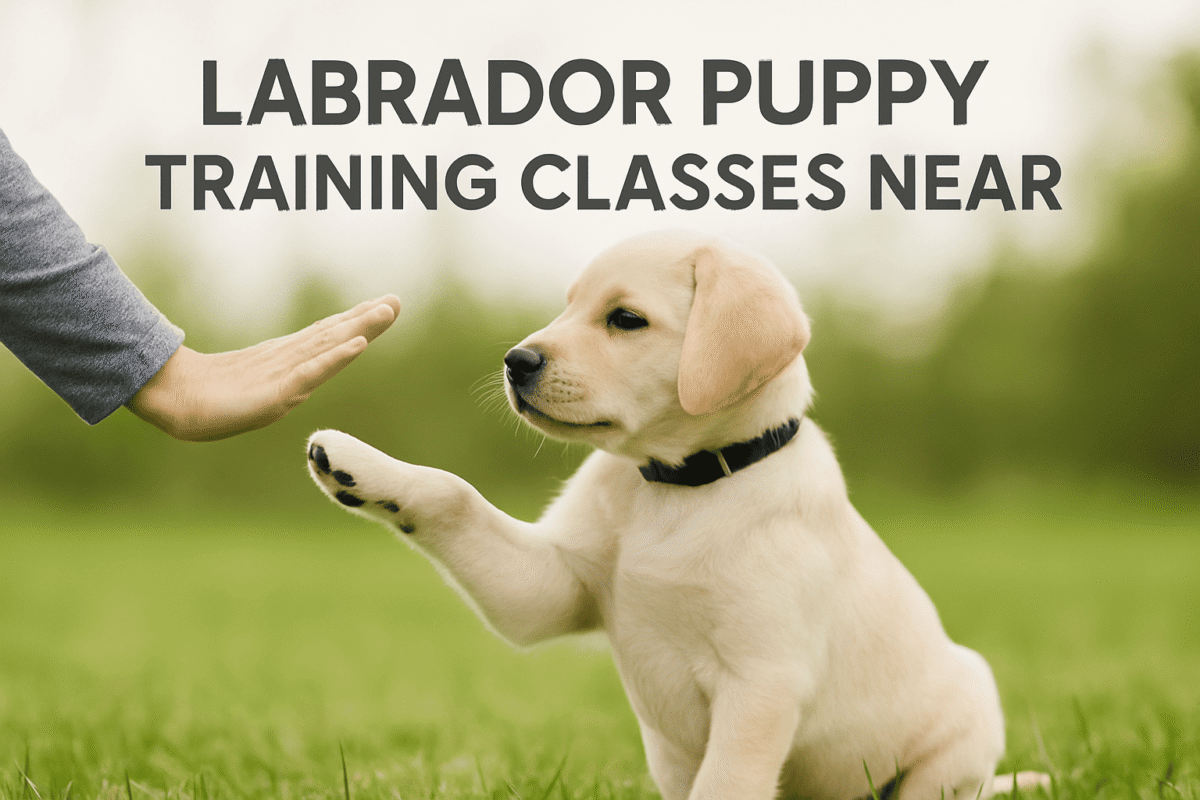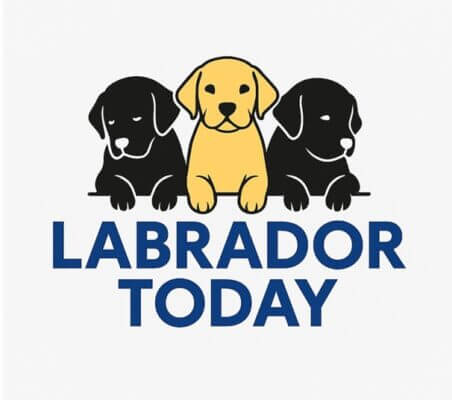So, you’ve welcomed your bouncy, wriggly, and tirelessly curious Labrador puppy home. The puppy dog eyes melt you, but the nipping, the carpet accidents, and the sheer energy of their enthusiasm might be starting to get you down. You’ve Googled “Labrador puppy training classes near me,” and now you’re faced with a dozen or more options. How do you choose?
Finding the right training class is one of the most important investments you’ll make in your Labrador’s long, happy life. It’s not just about teaching “sit” and “stay”; it’s about building a common language, forging a bond of trust, and giving your pup the social skills they need to be a confident, well-mannered member of your family and community.
This guide will walk you through everything you need to know not just how to find a class, but how to find the right one for you and your particular Labrador puppy.
This commitment to health is why at Labrador Today, we prioritize genetic health testing in all of our breeding programs.

Why Group Training Classes Are a Game-Changer for Labradors
You might be wondering whether you can just train your puppy at home. While early work is important, group classes offer some unique benefits that are hard to replicate in your living room.
- Real-World Socialization: This is the big one. A good puppy class is a safe, controlled environment for your Lab to meet other puppies of various sizes, breeds, and personalities. They learn to speak properly, read other dogs’ body language, and play without being too boisterous. This will avoid fear or aggression issues later on. For more on this crucial period, our guide to the best age to bring home a Labrador puppy explains why these early experiences are so significant.
- Training with Distractions: Your puppy might be a star pupil in your quiet kitchen, but what happens when another dog is present? Classes teach them to focus on you in the midst of exciting distractions like new playmates and smells. This is the foundation of good obedience in the real world, whether at a busy park or sidewalk café.
- You Get Expert Tips: A professional trainer might notice subtle mistakes in your timing or approach that you wouldn’t. They can offer personalized suggestions according to your Labrador’s personality—whether they’re a bold, confident pup or a shy one.
- It’s a Fun, Bonding Experience: Training together strengthens your bond. It’s that one hour a week that’s just for you and your puppy to learn to work together, building a relationship founded on positive reinforcement and mutual respect.
What to Look For in a Quality Puppy Training Class
Not all puppy classes are created equal. When you’re evaluating options in your area, look for these hallmarks of a reputable and effective training program.
1. A Focus on Positive Reinforcement
This is non-negotiable. Look for trainers who emphasize reward training. That is, they reward your puppy with treats, praise, toys, and play for doing it right, rather than punishing what’s wrong with fear, intimidation, or pain (like choke chains, prong collars, or electronic shock).
Why it’s essential for Labradors: Labs are famously people-pleasers and food-motivated. Positive reinforcement plays to their strengths. It encourages confidence and makes training a game they want to play. The American Kennel Club (AKC) is a big supporter of positive reinforcement training as the most effective and humane method.
Red Flag: A teacher who talks about “dominance,” “being the alpha,” or says that you need to “show your dog who’s boss.”
2. Small Class Sizes
A good class will have a low student-to-teacher ratio. There should never be more than 6-8 puppy-handler teams per one teacher.
Why it’s important: With a reduced class size, the instructor can give each group individual attention. They can answer your specific questions, walk you through a challenging exercise, and make sure everyone is progressing safely and effectively.
3. Clean, Safe, and Secure Facilities
Visit the facility if you can. The training area should be clean, well lit, and free of hazards. The floor should provide good traction for energetic puppies. There should be a policy in place requiring proof of vaccinations so that all of the puppies will be safe.
4. An Emphasis on Socialization (Not Just a Free-for-All)
A well-run class will have structured socialization periods, not a free-for-all puppy melee. Play will be supervised by the trainer, with unwanted behavior halted and you instructed in how to read your puppy’s cues to know when they’re having fun and when they’re being overwhelmed.
The Right Curriculum: What Should a Good Puppy Class Teach?
A puppy foundations class needs to cover more than just commands. Look for a curriculum that includes these essential skills:
- Social Skills: Polite greeting of people and other dogs.
- Grooming and Handling: Making your puppy used to being touched, having their paws touched, and being brushed. This ensures vet visits and grooming are a lot less stressful. Our Labrador grooming guide shows why an early start is important.
- Basic Obedience: The fundamental commands such as Sit, Down, Stay, Come (recall), and Leave It.
- Impulse Control: Teaching your puppy to wait politely for food, not to bolt out the door, and to settle down.
- Leash Skills: Acclimating your puppy to the leash and collar/harness without creating a lifelong puller.
- Problem Prevention: Addressing common issues like biting, mouthing, jumping up, and housebreaking.
How to Find and Vet Local Trainers
Now for the nitty-gritty: your search.
- Ask Your Veterinarian for a Recommendation: Your veterinarian is an excellent source of information. They witness the outcome of good and poor training and generally know which local trainers have reputations for positive, effective methods.
- Check Certification: Look for trainers certified by reputable organizations like the Certification Council for Professional Dog Trainers (CCPDT) or the Association of Professional Dog Trainers (APDT). These certifications mean the trainer has passed a knowledge-based exam and adheres to a code of ethics.
- Read Reviews (Carefully): Check Google, Yelp, and Facebook. Look for common threads in the reviews. Do people talk about their dog’s newfound confidence? Do they discuss the trainer’s patience and knowledge?
- Audit a Class: The majority of trainers will allow you to audit a class without your puppy. This is the best way to get a feel for their teaching style, how they interact with the dogs, and the classroom environment.
Your Role as Your Labrador’s Coach
Training doesn’t stop when you leave the classroom. The reality is, class is just the springboard. It’s up to you to practice the skills in different places—your backyard, living room, on a walk—in order for your puppy to understand that she needs to listen to you anywhere.
Consistency is everything. If you’re struggling with the “homework,” don’t be afraid to ask your trainer for help. That’s what you’re paying them for! For more foundational tips, our resource on training your Labrador Retriever offers a great starting point.
What About the Cost?
Puppy class costs can vary widely based on your location, the trainer’s experience, and the length of the course. You can generally expect to pay anywhere from $100 to $300 for a several-week course.
Think of this not as an expense, but as an investment. A well-trained dog is a safer dog, a more welcome member of society, and a source of joy rather than stress. The cost of a class is far lower than the price of repairing damage from behavioral problems down the road.
Your Next Step: From Searching to Signing Up
Your “Labrador puppy training classes near me” search is only the start of something incredible. You’re taking proactive steps to give your puppy the best possible start, and that’s something to be proud of.
Breathe, get your homework done, and find an instructor who makes you and your puppy feel comfortable, supported, and excited to learn. The bond that you build together in that class will last a lifetime.
Ready to Build the Best Partnership with Your Pup?
The bond you’re building with your Labrador is a special one. It’s built on trust, patience, and shared learning. Finding the right training class is a cornerstone of that relationship.
In the meantime, as you search for that perfect class, you can start to get off to a great start at home. Browse our resources and discover more about caring for your new Labrador puppy from day one. Your well-behaved, happy companion is worth it!

